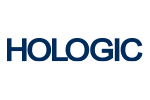The COVID-19 pandemic has impacted every aspect of our personal and professional lives. In many places early in the pandemic, access to timely diagnosis was limited by the number of laboratories with the ability to perform COVID-19 testing, either because of staffing limitations or reagent availability. Those issues persist today, but as the pandemic continues to ravage the global medical community, supply chain issues have introduced new challenges related not just to COVID-19 testing. Shortages of specimen tubes, personal protective equipment, and other common laboratory consumables threaten access to all aspects of diagnostic testing.
Choosing Wisely® and other laboratory medicine guidelines highlight specific strategies for laboratories to consider as supply chain shortages persist. While these strategies address supply chain shortages, they are also aligned with the patient centric principle of reducing blood collections that have no benefit but may be associated with increased risks.
These include, to name a few:
1. eliminating tests with little or no clinical utility;
2. curtailing the practice of standing orders that generate test requests and supply consumption frequently absent clinical need;
3. stopping the practice of “rainbow draws” in emergency departments; and,
4. engagement of laboratory consultants, including laboratory professionals with the new doctorate degree in clinical laboratory science (DCLS), to provide timely consultation to select only necessary tests.
COVID-10 supply chain issues have clearly created a healthcare crisis, including for the practice of laboratory medicine. To help us understand and quantify the scope of the supply chain issues in the laboratory, please share your concerns by February 17, 2022 by clicking on this
survey.
To read more articles from this issue of ePolicy, click
here. To learn more about ePolicy News and access past newsletters and articles, click
here.
For more information regarding ASCP's advocacy initiatives and policy positions, please contact ASCP's Center for Public Policy at (202) 408-1110.

ASCP ePolicy News is supported by an unrestricted grant from Hologic.
